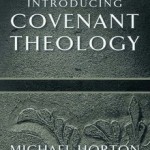I recently purchased a copy of The Federal Vision for kindle upon seeing a $3 price for those with Amazon Prime. I’ve followed the Federal Vision movement for quite some time, once as an Escondido influenced Reformed Christian viewing it as a heretical movement, and now as a Lutheran interested in the sacramental and catholicizing aspects of the movement. I’ve appreciate the writings of men like Rich Lusk, Peter Leithart, Douglas Wilson, and others immensely, while remaining in disagreement regarding many theological positions (particularly their treatment of law and gospel). Peter Leithart kindly wrote the forward to my first book.
One of the essays in the volume The Federal Vision (released back in 2004) is by Peter Leithart, titled “Judge Me, O God: Biblical Perspectives on Justification.” This essay explains Leithart’s unique doctrine of justification in a short and comprehensive manner. Throughout the essay, Leithart argues that the term “justification” is not only forensic. Rather, it also contains the notion of deliverance as an aspect of that forensic verdict. This is rooted in Christ’s own resurrection, his justification, which contains a forensic verdict along with an actual release and victory from death. In this context, Leithart purports that justification includes both the forgiveness of sins, and deliverance from one’s enemies: sin, death and the devil. Thus, when one is justified, they are forgiven and imputed righteous, and subsequently delivered from their enemies.
This position is particularly interesting in light of recent developments in Lutheran theology surrounding the idea of justification as a speech act. Oswald Bayer and others have utilized twentieth century speech-act theory to explain that the verdict of justification actually creates the reality that it declares. While I believe that contemporary Lutherans have taken this idea too far, especially in conflating justification and the call, there is an important connection here. By emphasizing Luther’s doctrine of the efficacy of the Word of God, Lutheran theologians such as Bayer, Kolb, and others, have demonstrated the connection between justification and sanctification. God speaks, and that word of deliverance actually does what it says. It is both forensic and effective.
Leithart’s idea of justification as a “deliverdict” (verdict that also delivers) coheres well with these movements in contemporary Lutheran theology. He notes, in the essay, that justification and “definitive sanctification” (a term used by John Murray to describe the initial declaration that one is holy prior to its inherent development in the human person), are synonymous concepts. Thus, sanctification is not divorced from justification, but is part of the actual deliverance from sin, death, and the devil that God declares in justification.
It’s quite ironic here that both Peter Leithart and Michael Horton (bitter enemies in some ways) recognize the problems with traditional Reformed formulations of the relationship between justification and sanctification, and solve the dilemma by speaking about the effective nature of God’s Word.












